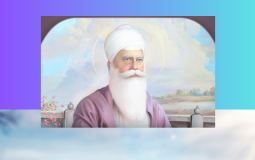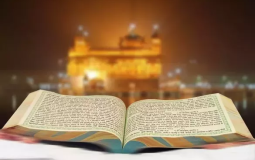There is “One GOD” is a misconception. There is “Only God” is truth.
Relying on Gurbani to clarify the fundamentals for those seeking salvation from all sufferings of the past and future.
The Guru Granth Sahib is not revered as a deity or image but as the embodiment of Gurbani, the divine Word, revealed directly from the Supreme to the Guru. Gurbani is not a product of human speculation but a sacred revelation bestowed upon chosen individuals at the pinnacle of consciousness, transcending ordinary human experience.
The Guru Granth Sahib holds a unique position among all religious scriptures, serving as the eternal spiritual guide for Sikhs. It embodies the collective wisdom of the ten Sikh Gurus, representing the divine essence in the form of the Shabad Guru Granth Sahib.
Sikh literature, with its diverse array of texts, narratives, and poetry, serves as a gateway to comprehending the essence of Sikhism, its values, and its evolution over time.
“After thorough contemplation with other Singh Sahibs we have decided to declare ban on the use of the title by any Sikh individual,” he said, adding that the title could only be used for Sikh gurus — from Sri Guru Nanak Dev to Sri Guru Granth Sahib.









